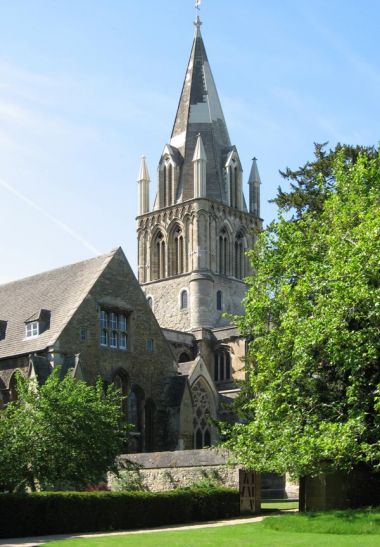Why evensong offers something every student wants
Going to evensong before heading for a pint at the pub was not an abnormal way to spend a Sunday evening, or any evening, during my time at university.

A beautiful college chapel filled with the sound of ancient choral music creates an atmosphere that both calms and inspires. The grand yet intimate setting enables your mind to wander from work into worship, without any pressure. The choir provide the soundtrack and the chapel the setting within which to unwind, and to worship with a gentle ease that is so welcome to a brain filled with a day's worth of reading.
The attraction of chapel evensong is apparently a growing one. The Telegraph reported today that college chaplains have seen a "steady but noticeable increase in attendances at the early evening services". These services, which combine contemplative music with the 16th century language of the Book of Common prayer, offer something the Oxbridge student, or any student for that matter, wants: time.
The liturgical service provides 50 minutes in which one is free to simply be, away from the distractions existing outside the chapel walls. It offers a unique combination of community and solitude: sitting amid a congregation often numbering over a hundred in a room filled with sound, you get a chance to be silent, and to meditate.
Unlike more charismatic student churches, the college evensong seems to be just as popular with those who are without – or on the edge of – faith, as with those who are fervent believers. Most times I went to chapel, it was because a non-Christian friend asked me to go. The service offers a sanctuary with a seemingly universal appeal.
There are a couple of factors that I think feed into this.
The liturgical nature of the service gives helpful a structure. You know that when you sit down, you will be free to go in precisely 50 minutes; there is no fear of an extended worship set, however Spirit-led.
That the services are aesthetically beautiful, both in setting and in content must also help. While I am a huge fan of the relaxed nature of modern church, both in terms of worship and words, the setting of a however-many-hundred-year-old chapel combined with well-composed music sung by choral scholars provides an environment that is objectively enjoyable.
Similarly, there is a sense that you are stepping into a tradition that is greater than yourself – there is a weight of history behind the service. The 16th century liturgy and choral tradition offers security as you enter; you know what you are getting, and can appreciate the weight which comes with participating in a shared history.
While the language in the liturgy might be alien to modern ears, "precisely for that reason it's also less threatening and more inclusive," Rev Dr Daniel Inman, chaplain of The Queen's College in Oxford told the Telegraph.
"You're not really asked to signal your own dogmatic beliefs or lack thereof, but invited to join in a pattern of worship that has shaped our national life for centuries."
There is a freedom that comes with anonymity. The expectation is never that you will overtly share your faith, but the atmosphere created is one that welcomes exploration. Partaking in the communal worship invites awe to grow, without the fear that you might be forced to articulate it expressly.
Additionally, while the setting might be grand, the college chapel is oddly familiar for an Oxbridge student. It's likely one of your friends is in the choir, and that you walk past the chapel each day on your way to lunch.
Just as mindfulness offers a way to unwind in the secular world, the combination of music, silence and ancient liturgy offers a sacred alternative. Evensong is not a performance with an audience, but a communal act of worship which offers sanctuary from the outside world.
"There is increasing pressure on students to succeed and excel, and evensong provides a space where they are not required to perform for tutor, parents and prospective employer, but to just be themselves for a half hour," Inman said. "That's very healthy, I think."
And, finishing at 7 means there's plenty of time for a post-prayer pint.











